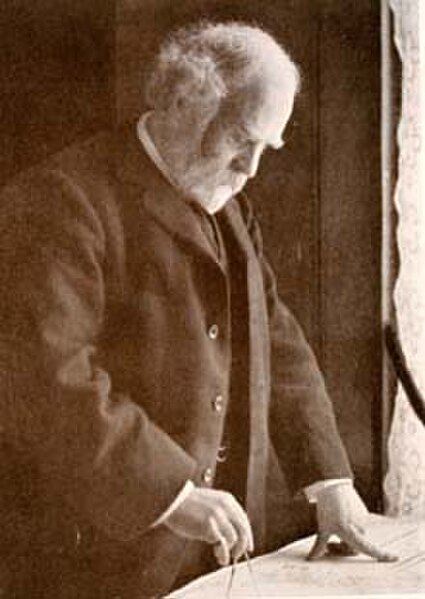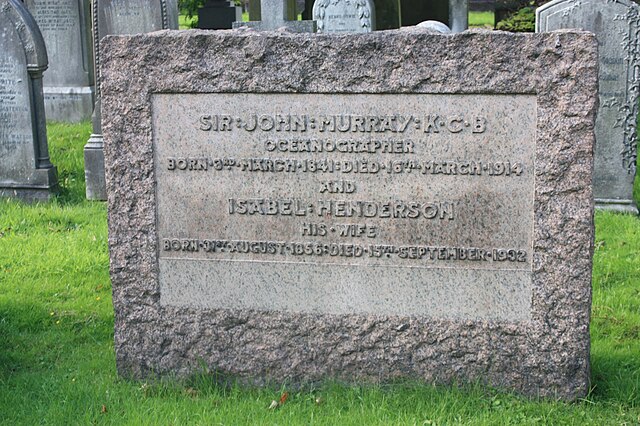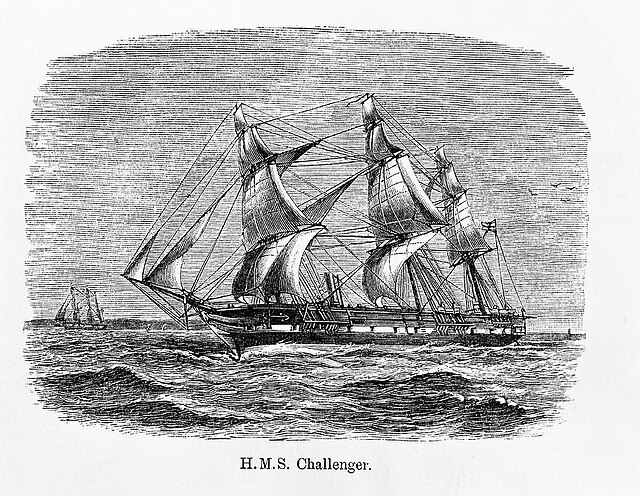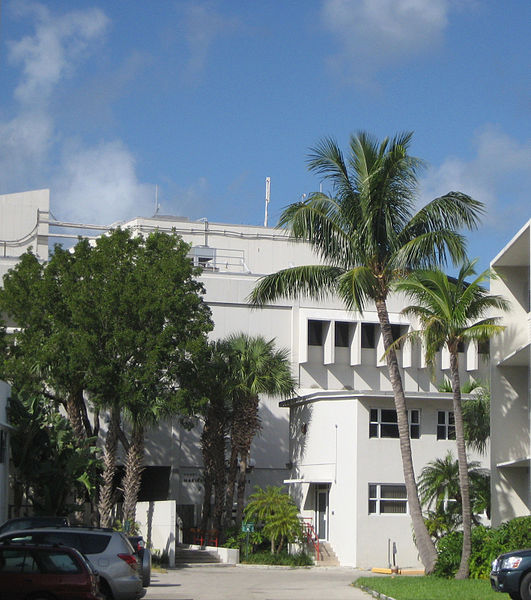John Murray (oceanographer)
Sir John Murray was a pioneering Canadian-born British oceanographer, marine biologist and limnologist. He is considered to be the father of modern oceanography.
Murray in c. 1899-1902
Sir John Murray's grave, Dean Cemetery, Edinburgh
The Cirrothauma murrayi octopus, named after Murray
Oceanography, also known as oceanology, sea science, ocean science, and marine science, is the scientific study of the oceans. It is an Earth science, which covers a wide range of topics, including ecosystem dynamics; ocean currents, waves, and geophysical fluid dynamics; plate tectonics and seabed geology; and fluxes of various chemical substances and physical properties within the ocean and across its boundaries. These diverse topics reflect multiple disciplines that oceanographers utilize to glean further knowledge of the world ocean, including astronomy, biology, chemistry, geography, geology, hydrology, meteorology and physics. Paleoceanography studies the history of the oceans in the geologic past. An oceanographer is a person who studies many matters concerned with oceans, including marine geology, physics, chemistry, and biology.
HMS Challenger undertook the first global marine research expedition in 1872.
Ocean currents (1911)
Writer and geographer John Francon Williams FRGS commemorative plaque, Clackmannan Cemetery 2019
The Applied Marine Physics Building at the University of Miami's Rosenstiel School of Marine, Atmospheric, and Earth Science on Virginia Key, in September 2007







